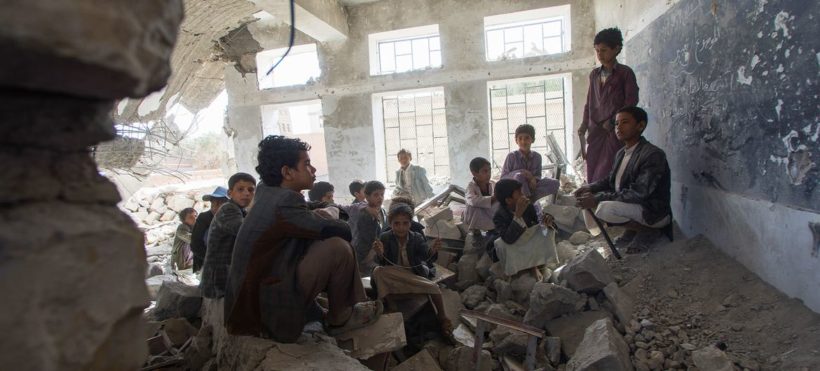The number of children affected by crises and in need of urgent education assistance is rising at an alarming rate, from 75 million in 2016 to 222 million today, the United Nations education in emergencies fund warned on Tuesday 21.
Gordon Brown, UN special envoy for global education, said that “we must now take responsible action for the 222 million children and adolescents in emergencies and protracted crises.”
“The world has the financial resources to ensure that every child receives a quality education. Governments, the private sector and foundations can and must unlock those resources,” Brown added.
According to a new report by the Education Can’t Wait (ECW) fund, 78.2 million children are out of school and 120 million children are in school but do not have minimum proficiency levels in maths or reading.
Moreover, only 10 % of those in primary or secondary school reach proficiency standards.
According to the study, 84% of children out of school because of the crisis live in countries such as Afghanistan, the Democratic Republic of Congo, Ethiopia, Mali, Nigeria, Pakistan, Somalia, Sudan, South Sudan and Yemen, where wars and other factors keep children out of school or prevent them from attending.
In Ukraine, an estimated 5.7 million school-age children have been affected by conflict in the space of a few months.
With insufficient resources to respond to this pressing reality and the covid-19 pandemic widening the shortfall, ECW and its partners launched their resource mobilisation campaign in Switzerland.
The initiative, “222 Million Dreams”, seeks to raise funds from donors, the private sector and others to expand its operations, which already provide quality education to more than five million children in more than 40 crisis-affected countries.
In Latin America and the Caribbean, the programme serves children in Brazil, Colombia, Ecuador, Haiti, Peru and Venezuela.
Yasmine Sherif, director of the Education Cannot Wait programme, stressed that for children whose experiences are rooted in war and forced displacement, “this is our moment to empower them to turn their dreams into reality: they dream of becoming their own potential instead of being victims”.
Sustainable Development Goal 4 in the United Nations 2030 Agenda is a commitment by world leaders to ensure inclusive, equitable and quality education, and to promote lifelong learning opportunities for all, programme officials recalled.
Their analysis finds that the pandemic and other factors reversed two decades of progress in education, and according to the UN many of the least developed countries have poor basic school infrastructure.
Only 54% of schools in these countries, on average, have access to safe drinking water, just 33% have a reliable electricity supply and only 40% have hand-washing facilities.
UN Secretary-General Antonio Guterres has convened an Education Transformation Summit in September to galvanise political action and solidarity to transform education and make up for the ground lost in recent years of pandemic and conflict.












